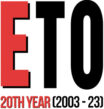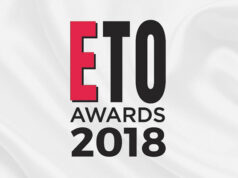Thanks to a High Court ruling on March the 27th, Telefonica – O2’s parent company – is now required to produce the names and addresses of their broadband customers who Golden Eye International believe spread Ben Dover films across peer-to-peer file sharing networks, allowing the firm to seek damages.
Golden Eye – the exclusive licensee of the films of Ben Dover Productions – describes itself as “the holder of numerous film copyrights” and argued that the “unlawful distribution of copyright material is detrimental to the film and creative industries.”
In the landmark case, the Chancery Division of the High Court ordered that a portion 9,000 IP addresses, which Golden Eye (co-founded by the man behind Ben Dover Productions, and Julian Becker, commercial director of Optime Strategies Ltd., in 2009) have targeted as illegal sharers be identified. However, the judge added Lindsay Honey’s (aka Ben Dover) intention to demand £700 from each of the O2 customers highlighted as unlawful filesharers was “unsupportable” and would only grant access to O2’s data on the understanding this demand would be dropped from the letters.
Despite O2’s fight against the case, on the grounds that it had to protect its customers’ details, judge Mr Justice Arnold granted Golden Eye International access, but only to data relating to those accused of sharing Ben Dover Productions’ films via BitTorrent. Twelve other adult studios were involved in the case, but they’ve not been granted the same access. The court rejected their applications but found in favour of Ben Dover Productions, saying that “the claimants’ interests in enforcing their copyrights outweigh the intended defendants’ interest in protecting their privacy and data protection rights”.
The other applications for O2 customers’ personal details, relating to other producers, were rejected by Mr Justice Arnold because Golden Eye International intended to pursue alleged unlawful downloaders and take 75 per cent of any damages paid. Which, according to the judge, “…would be tantamount to the court sanctioning the sale of the intended defendants’ privacy and data protection rights to the highest bidder.” The twelve other British studios involved in the case included Easy on the Eye, SweetMeats and One-Eyed Jack Film productions. The ruling, that Golden Eye didn’t have the rights to sue for profit on their behalf, may yet be challenged.
The judge added the letters which Golden Eye International intended to send to the named individuals, demanding payment of £700 or face court action, was “capable of causing unnecessary distress because it could be read as an implicit threat of publicity once proceedings have been commenced”.
Instead, the court ruled Golden Eye must allow O2 customers fair opportunity to show they’d not committed copyright infringement. Any remittance for infringement of Ben Dover Productions’ copyright would need to be negotiated on a defendant-by-defendant basis as well.
A spokesman for O2 said, “Clearly we respect the court order and will therefore be co-operating fully.” The telecoms firm will cross-reference a fraction of the 9,124 IP addresses that were originally detected infringing adult studios’ copyright against its customer database and supply personal details to Golden Eye. Like other UK ISPs, O2 is required to keep logs of the IP addresses assigned to all customers for a year.
Consumer Focus’ chief executive Mike O’Connor, who was allowed to intervene in the case on behalf of the O2 customers, said that although personal details will be released, the case had helped to protect internet users from so-called speculative invoicing by placing a greater burden of proof on the claimant.
O’Connor commented, “This case sets an important precedent for the rights of consumers, particularly those who are innocent, and the responsibilities of companies seeking redress on behalf of copyright owners. It is very welcome that the court has recognised the bill-payer should not be automatically assumed to be guilty when a copyright owner believes they have detected copyright infringement on that internet connection.”
The claim of ‘speculative invoicing’ by copyright holders pursuing reparations from illegal sharers of their content is not unknown in the UK. It’s closely associated with ACS:Law, the now defunct firm of London solicitors which sent out around 20,000 letters alleging unlawful file exchanging and demanding payment on behalf of film and computer-game rights holders. ACS:Law’s founder, Andrew Crossley, was later found guilty by the Solicitors Disciplinary Tribunal of seven charges of conduct unbefitting a solicitor.
In January Crossley was suspended from acting as a solicitor for two years and was ordered to pay more than £76,000 in costs. This followed a series of attacks on ACS:Law’s computer systems by hackers acting for Anonymous, who published the firm’s internal emails – including BT customer details – online. ACS:Law ceased trading soon afterwards, with Andrew Crossley telling a court he’d also received death and bomb threats.



![20 years of ETO: Harmony, Charing Cross Road, London [reprinted from issue 1, July 2003]](https://www.erotictradeonly.com/wp-content/uploads/2023/08/NEWS_20YEARS_HARMONY_ISSUE1-238x178.jpg)











